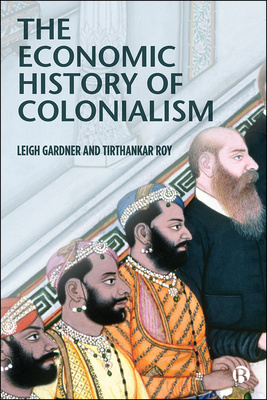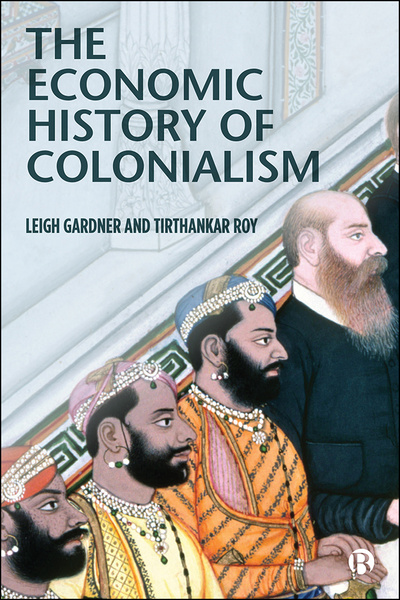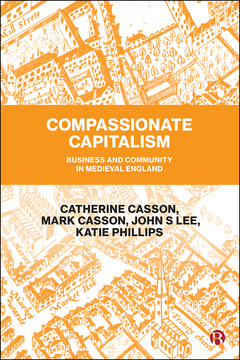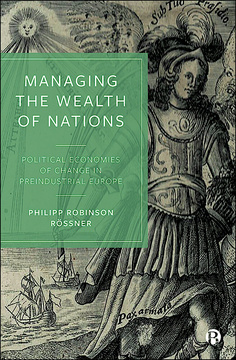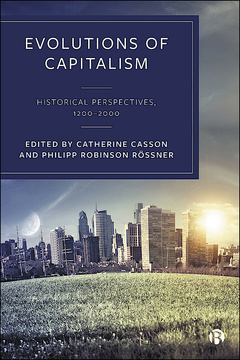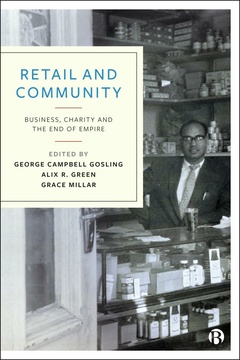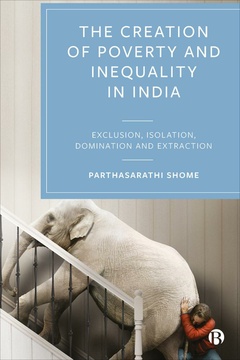The Economic History of Colonialism
By Leigh Gardner and Tirthankar Roy
Published
Jul 15, 2020Page count
244 pagesISBN
978-1529207644Dimensions
234 x 156 mmImprint
Bristol University PressPublished
Jul 15, 2020Page count
244 pagesISBN
978-1529207637Dimensions
234 x 156 mmImprint
Bristol University PressPublished
Jul 15, 2020Page count
244 pagesISBN
978-1529207668Imprint
Bristol University PressPublished
Jul 15, 2020Page count
244 pagesISBN
978-1529207668Imprint
Bristol University PressIn the media
On our blog: The legacies of colonialism
Debates about the origins and effects of European rule in the non-European world have animated the field of economic history since the 1850s. This pioneering text provides a concise and accessible resource that introduces key readings, builds connections between ideas and helps students to develop informed views of colonialism as a force in shaping the modern world.
With special reference to European colonialism of the nineteenth and twentieth centuries in both Asia and Africa, this book:
•critically reviews the literature on colonialism and economic growth;
•covers a range of different methods of analysis;
•offers a comparative approach, as opposed to a collection of regional histories, deftly weaving together different themes.
With debates around globalization, migration, global finance and environmental change intensifying, this authoritative account of the relationship between colonialism and economic development makes an invaluable contribution to several distinct literatures in economic history.
"The authors provide a clear and balanced guide to a burgeoning literature. Emphasizing diversity of outcomes, they consider how colonizers and colonized stimulated or hindered their respective economies, in the light of environmental constraints." William G. Clarence-Smith, SOAS University of London
"This book gives a nuanced view of how colonial rule was not merely intended as an exploitative tool but was a combination of the empire’s desire for power, the intended or unintended consequences of their policies as well as local factors." LSE Review of Books
"This wide-ranging overview brings together work by economists and historians working on the economy, business and the environment. It is an essential text on any undergraduate syllabus concerning colonial economies." James Fenske, University of Warwick
"This is a useful antidote for students against the rather superficial work that tends to blame underdevelopment in Asia and Africa simply on the legacies of colonialism.’’ Anne Booth, SOAS University of London
“The literature on colonialism is vast, but much of it is marred by generalization from the particular. Unique in its focus on different ‘varieties of colonialism,’ this is an authoritative source of reference.’’ Mark Casson, University of Reading
Leigh Gardner is Associate Professor of Economic History at the London School of Economics and Research Associate in African Economic History at Stellenbosch University.
Tirthankar Roy is Professor of Economic History at the London School of Economics.
Colonial and Indigenous Origins of Comparative Development
Origins of Colonialism: Is There One Story?
Colonialism as an Agent of Globalization
Growth and Development in the Colonies
Debates about Costs and Benefits
How Colonial States Worked
Did Institutions Matter?
Colonialism and the Environment
Business and Empires
Decolonization and the End of Empire
Summary and conclusion







